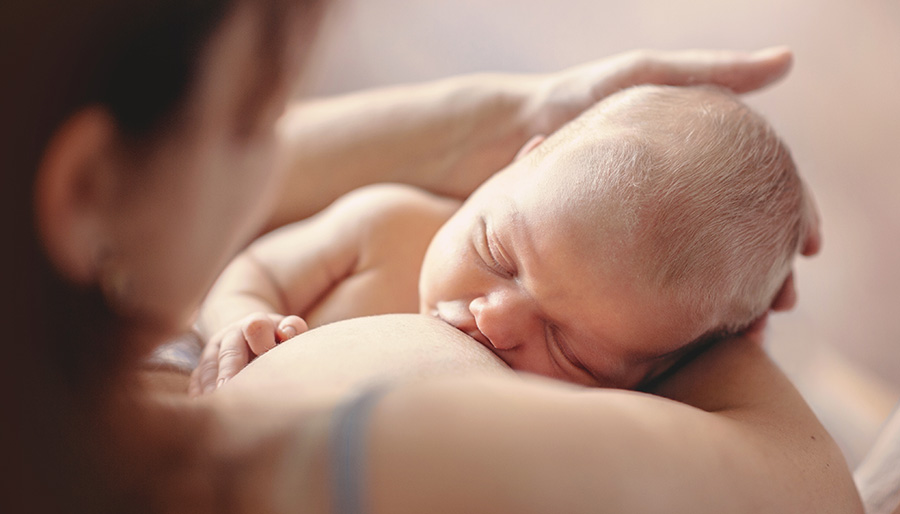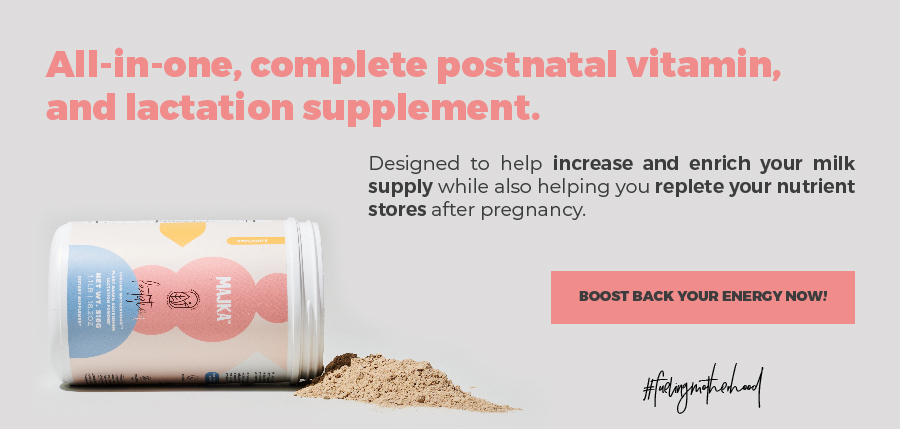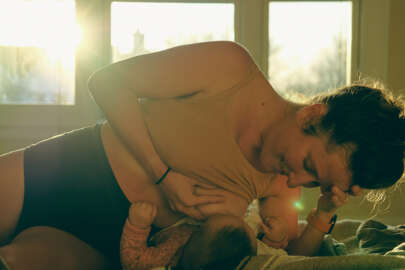
When it comes to helping your baby to sleep, breastfeeding has been found to be a great option to make this happen, but there is a common doubt as to whether this is a healthy habit or a good choice for babies.
In this article we will tell you what has been found regarding this habit so you can make the choice that is best for you and for your baby.
Something to keep in mind
Breastfeeding-sleep association is not a permanent thing as when your child feels ready he/she will naturally change this habit. But if this isn’t working for you, or if your doctor recommends it then you can try to make some changes.
But this doesn’t mean that breastfeeding to sleep is a bad thing for your baby as falling asleep while nursing is normal, natural and developmentally ok for a baby.
If you are able to be around to feed your baby to sleep and your doctor finds everything ok with your baby’s health then there isn’t a need to break this association.
The consequence of keeping a breastfeeding sleep association will only be that whenever you feel the need to stop this before your baby does it naturally it may be a bit hard as your child has made a habit (which isn’t a bad habit) of it and if you are not able to do it sometimes, the people around may have a big trouble to make your baby fall asleep. You may also find yourself overtired with keeping this habit but none of these consequences will any harm your child development.
What is a breastfeeding-sleep association and how does it happen?
Some moms find that breastfeeding is a comforting behavior to facilitate their child’s sleep so they start breastfeeding their baby everytime they want him/her to fall asleep. Breastfeeding-sleep association is what happens when you make this a habit and your baby is only able to sleep if he/she is receiving milk.
Your baby begins to associate falling asleep with breastfeeding and will require it every time he/she needs to sleep, including wakes at night.
This habit may make it difficult for you to have him/her depend on breastfeeding to sleep every time. Although it is important to mention that nursing your baby to sleep isn’t bad and can be beneficial for your baby by improving calmness, restfulness, feelings of safety and of security.
Is it normal if my baby only sleeps when I nurse?
Breastfeeding does help your baby to fall asleep quickly due to the rhythmic action of sucking and the sleep inducing hormones (breast milk contains melatonin which helps your baby to sleep) in your milk which help your baby’s circadian rhythms. Also, having a full stomach will make your baby tired and he/she most likely will fall asleep after feeding.
Breastfeeding helps you to bond with your baby and make him/her feel loved, secured, safe and calm which may make him/her fall asleep easily, this is all great for your baby’s development.
So, it is normal if your baby sleeps when you nurse him/her but breastfeeding sleep-association begins when your baby ONLY sleeps IF you nurse him/her which may be inconvenient for you if you are not always able to be there to nurse your baby to sleep, or if you need to sleep more.
When should I stop breastfeeding to sleep?
This decision really depends on you, and remember to always keep in touch with your healthcare provider so you can get the best advice regarding your case.
Waking infants for nighttime feedings has been found as one of the most common causes of sleep disturbances in moms, so if you are feeling overtired or if for any reason you feel the need to change this habit you try to make it happen less, but keep in mind that is normal for babies to wake in the night to feed specially their first year of life.
It’s important to mention that no change in your baby’s life should be forced, it needs to be gently induced so your baby doesn’t feel pushed, confused or anxious about it. Also, it is harder to break a habit if this has been going on for a long time, so you may want to start as soon as you feel it’s necessary.
How do I do this?
First of all is important to know that as any of us, your baby will not feel that happy about a new routine when he/she is used to something else, so it’s better to be prepared for this and be patience with this process with the confidence of knowing that this doesn’t mean that the habit won’t change.
One thing to remember when you want to establish a new habit for your baby is consistency.
As though sometimes it will be hard to change a routine, if your baby finds consistency he/she will learn that things have changed and will adapt to the new routine eventually.
Things that you can do to break the sleep-association habit:
- Introduce new sleep associations such as rubbing his/her back, bath time or a bedtime story instead of feeding.
- You can nurse your baby before he/she sleeps but not TO sleep, for this you can stop the feeding when he/she is almost asleep.
- Keep a sleep and nap routine that is predictable and that it doesn’t have to do with nursing.
- If you are co sleeping it may be helpful to create new routines in the family bed.
- You can set a place to nurse that is different from the place to sleep to associate the bedroom only to sleep and not to feed.
*Always keep in mind that your healthcare provider will have the best answer regarding your specific case.
In Breastfeeding 101 we are very happy to share this information with you and we hope this has been of help for you to feel secure and confident regarding this matter, we also invite you to follow all of our content to find more information about your baby’s development.
If you want to learn more about how to break breastfeeding-sleep association we share with you some of the sources that made this article possible:
A Community-Based Study of Sleep and Cognitive Development in Infants and Toddlers I JCSM
A Proposed Nursing Theory: Infant Sleep and Development I National Library of Medicine
Association between breastfeeding and new mothers’ sleep: a unique Australian time use study I National Library of Medicine
Association between breastfeeding and sleep patterns in infants and preschool children I The American Journal of Clinical Nutrition
Bedsharing and Breastfeeding: The Academy of Breastfeeding Medicine Protocol #6, Revision 2019 I Mary Ann Liebert Inc publishers
Breastfeeding and co sleeping I Australian Breastfeeding Association
Breastfeeding and Short Sleep Duration in Mothers and 6 to 11 Month Old Infants I National Library of Medicine
Breastfeeding to sleep | breastfeeding.support
Development and evaluation of ‘Sleep, Baby & You’—An approach to supporting parental well-being and responsive infant caregiving I National Library of Medicine
Does breastfeeding influence sleep? A longitudinal study across the first two postpartum years I Birth Issues in Perinatal Care
Effect of current breastfeeding on sleep patterns in infants from Asia-Pacific region I Journal of Pediatricians and Child Health
0980 relations between infant feeding practices and sleep quality or duration at age 2 in the french eden birth cohort i oxford academic
Annie Rueb






